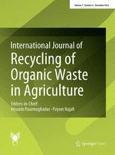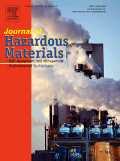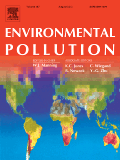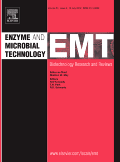
BIODEGRADATION
metrics 2024
Exploring the intersection of microbiology and environmental health.
Introduction
BIODEGRADATION is a leading academic journal published by Springer that focuses on the interdisciplinary study of the degradation of organic compounds and its implications for environmental health and sustainability. Operating since 1990, BIODEGRADATION has established itself as a pivotal resource in the fields of bioengineering, environmental chemistry, environmental engineering, microbiology, and pollution management, currently ranking in the Q2 quartile across these categories as of 2023. With an ISSN of 0923-9820 and an E-ISSN of 1572-9729, the journal disseminates high-quality, peer-reviewed research, engaging both seasoned researchers and emerging scholars interested in the mechanisms and applications of biodegradation processes. While the journal operates under a subscription model, it continues to attract significant interest due to its comprehensive coverage of innovative methodologies and critical analysis of biodegradation pathways and their environmental significance. As a beacon in its field, BIODEGRADATION not only addresses contemporary issues in environmental science but also fosters academic conversation and collaboration amongst researchers globally, making it an indispensable asset for those dedicated to advancing sustainability practices.
Metrics 2024
 0.84
0.84 3.10
3.10 3.40
3.40 91
91Metrics History
Rank 2024
Scopus
IF (Web Of Science)
JCI (Web Of Science)
Quartile History
Similar Journals

International Journal Of Recycling of Organic Waste in Agriculture
Driving Change: From Waste to Valuable Resources in FarmingInternational Journal of Recycling of Organic Waste in Agriculture is a pioneering open-access journal, established in 2012 and published by the Islamic Azad University, Isfahan-Khorasgan Branch, Iran. With ISSN 2195-3228 and E-ISSN 2251-7715, this journal focuses on innovative research and development in the field of organic waste recycling within agricultural contexts. As indicated by its latest metrics, it holds a respectable ranking in the Q2 quartile in Agricultural and Biological Sciences and Q3 in Waste Management and Disposal for 2023. This positions the journal as a valuable resource for professionals, researchers, and students invested in sustainable agricultural practices and waste management strategies. With its commitment to advancing knowledge and fostering interdisciplinary dialogue, the journal serves as an essential platform for disseminating significant findings that can positively impact environmental sustainability and agricultural productivity worldwide.

Synthetic and Systems Biotechnology
Fostering Collaboration in Cutting-edge BiotechnologySynthetic and Systems Biotechnology, published by KEAI PUBLISHING LTD, is a pioneering open-access journal that has made significant contributions to the fields of applied microbiology, biotechnology, biomedical engineering, genetics, and structural biology since its inception in 2016. With an ISSN of 2405-805X, this journal is committed to fostering innovative research and interdisciplinary collaboration, providing a platform for the dissemination of high-quality studies that push the boundaries of scientific knowledge. Recognized for its excellence, it holds prestigious Q1 rankings in both Applied Microbiology and Biotechnology as well as Biomedical Engineering in 2023, alongside notable Q2 rankings in Genetics and Structural Biology. Researchers, professionals, and students alike can access cutting-edge research that explores the dynamic interplay between synthetic biology and systems biology, driving advancements that could reshape health, industry, and environmental sustainability. By operating under an open-access model, Synthetic and Systems Biotechnology ensures that new findings are accessible to a global audience, thereby maximizing the impact and reach of the published work and paving the way for future discoveries.

JOURNAL OF HAZARDOUS MATERIALS
Advancing the Science of Safety and SustainabilityJOURNAL OF HAZARDOUS MATERIALS, published by Elsevier, stands as a leading academic platform in the fields of Environmental Chemistry, Environmental Engineering, and Pollution Studies. With a solid impact captured through its Q1 ranking across multiple relevant categories, this journal is essential for researchers focusing on the management and mitigation of hazardous materials. Originating in 1975 and continuing to present insight until 2024, it provides valuable peer-reviewed content that informs best practices within health, toxicology, mutagenesis, and waste management. Furthermore, its impressive Scopus rankings highlight its influence, securing a position in the top percentile among global publications. While access to the journal is not open access, its rigorous approach to impactful research makes it indispensable for academics, industry professionals, and students seeking to deepen their understanding and innovate in this critical area of study.

ENVIRONMENTAL POLLUTION
Pioneering research in toxicology and public health.Environmental Pollution, published by Elsevier Science Ltd, stands at the forefront of research related to environmental contaminants and their effects on health and ecosystems. With an impressive impact factor reflected in its Q1 rankings across various categories including Health, Toxicology, and Pollution, this journal is a pivotal resource for academics and professionals in the fields of environmental science and toxicology. The journal, established in 1973, continues to disseminate high-quality articles that explore the implications of pollution and advance knowledge on toxicological impacts and mitigation strategies. Although it is not an open-access journal, it offers robust visibility within the scientific community, ensuring vital research reaches those who need it most. Researchers, students, and professionals dedicated to understanding and addressing the challenges of environmental pollution will find Environmental Pollution to be an indispensable platform for their work, guiding the ongoing dialogue on sustainable practices and public health protection.

Bioresources and Bioprocessing
Driving Innovation in Renewable Energy and BioprocessingBioresources and Bioprocessing is an esteemed open-access journal published by SPRINGER HEIDELBERG, dedicated to the innovative fields of biomedical engineering, biotechnology, food science, and renewable energy. Since its inception in 2014, the journal has rapidly established itself as a leading platform for high-quality research, boasting a Q2 ranking in key categories such as Biomedical Engineering and Biotechnology, and an impressive Q1 status in Food Science for 2023. With robust Scopus rankings placing it in the top percentiles across multiple disciplines, Bioresources and Bioprocessing serves not only as a conduit for original research but also for critical insights into sustainable bioprocessing techniques that contribute to environmental stewardship. It is particularly aimed at researchers, professionals, and students committed to advancing knowledge in the bioprocessing sphere, promoting evidence-based innovations that leverage biological resources for diverse applications. Emphasizing open access, the journal ensures that cutting-edge research is readily available to a global audience, reinforcing its commitment to scientific communication and collaboration.

ENZYME AND MICROBIAL TECHNOLOGY
Exploring the Frontiers of Biochemical InnovationENZYME AND MICROBIAL TECHNOLOGY, a premier journal published by Elsevier Science Inc, serves as a pivotal platform for researchers and professionals dedicated to exploring the dynamic intersections of microbiology, biochemistry, and bioengineering. With a rich publication history dating back to 1979 and converging until 2024, this journal has established itself within the Q2 quartile rankings across multiple categories, including Applied Microbiology and Biotechnology, Biochemistry, Bioengineering, and Biotechnology, highlighting its influential role in advancing scientific discourse. It holds impressive Scopus rankings, where it is recognized in the 79th percentile for Applied Microbiology and Biotechnology and ranks favorably in related fields, making it a valuable resource for academic and industrial researchers looking to stay abreast of the latest developments. Although it does not currently offer Open Access options, ENZYME AND MICROBIAL TECHNOLOGY remains an essential read for anyone invested in the biotechnological applications of enzymes and microorganisms.

CRITICAL REVIEWS IN BIOTECHNOLOGY
Transforming Research Through Critical AnalysisCRITICAL REVIEWS IN BIOTECHNOLOGY, published by Taylor & Francis Ltd, stands as a leading journal in the field of biotechnology, consistently recognized for its rigorous peer-reviewed articles that impact the disciplines of Applied Microbiology, Biotechnology, and Medicine. With an impressive Q1 ranking in these categories and a significant influence reflected in its Scopus rankings—placing it within the top 5% of Applied Microbiology and the top 4% of Biotechnology journals—the journal serves as an essential resource for researchers, professionals, and students alike. Launched in 1983 and extending its coverage to encompass groundbreaking findings through 2024, it provides a rich forum for insightful reviews and innovative research that propel the field forward. Though not an Open Access journal, CRITICAL REVIEWS IN BIOTECHNOLOGY remains a vital point of reference for ongoing developments, critical analyses, and emerging trends, making it indispensable for those seeking to stay at the forefront of biotechnological advancements.

Malaysian Journal of Microbiology
Innovating Microbiology: Bridging Local Insights and Global ImpactMalaysian Journal of Microbiology is a prestigious open-access journal dedicated to advancing the field of microbiology, published by the Malaysian Society for Microbiology. Since its inception in 2005, this journal has become an essential platform for researchers and practitioners, facilitating the dissemination of innovative studies in applied microbiology, biotechnology, and infectious diseases. Based in Penang, Malaysia, this journal not only focuses on local microbiological research but also positions itself within the broader global scientific community. Although currently placed in the Q4 category in several relevant fields—including Applied Microbiology and Biotechnology, Infectious Diseases, and Medical Microbiology according to the 2023 Scopus rankings—it plays a crucial role in encouraging novel research and fostering collaboration among scientists. The journal encourages submissions that contribute to the understanding of microbial processes, disease mechanisms, and novel biotechnological applications, thereby supporting the continuous growth of knowledge in microbiology. With open access since its launch, the Malaysian Journal of Microbiology ensures that all published works are freely available to the public, enhancing their visibility and impact within the scientific community.

npj Materials Degradation
Enhancing Knowledge in Materials Sciencenpj Materials Degradation is a premier open-access journal published by NATURE PORTFOLIO that has rapidly established itself in the field of materials science since its inception in 2017. With its focus on the degradation processes affecting materials and their applications, this journal is essential for researchers and professionals seeking to advance their understanding of the longevity and sustainability of materials. The journal boasts an impressive impact, classified in the top quartile (Q1) of categories such as Ceramics and Composites, Materials Chemistry, and miscellaneous areas of Chemistry and Materials Science, as evidenced by its Scopus rankings where it ranks #17 in Chemistry (miscellaneous) and #27 in Ceramics and Composites. With open access options allowing for a broader dissemination of research findings, npj Materials Degradation serves as a vital platform for the dissemination of innovative research and interdisciplinary collaboration, enhancing the collective knowledge in the ever-evolving landscape of materials engineering and science.

BIOLOGY AND ENVIRONMENT-PROCEEDINGS OF THE ROYAL IRISH ACADEMY
Pioneering Discoveries in Biological and Environmental ResearchBIOLOGY AND ENVIRONMENT - PROCEEDINGS OF THE ROYAL IRISH ACADEMY serves as a vital platform for advancing knowledge in the rapidly evolving fields of biological and environmental sciences. Published by the esteemed Royal Irish Academy, this journal, with an ISSN of 0791-7945 and an E-ISSN of 2009-003X, offers a rich compilation of research articles, reviews, and proceedings that cater to the academic community in Ireland and beyond. Since its inception in 1993 and continuing through to 2024, the journal has positioned itself as a valuable resource within the Q4 category in Agricultural and Biological Sciences and Environmental Science, as detailed by the 2023 Scopus rankings. While not currently offering open access, its contributions significantly impact understanding and discussions surrounding ecological and biological challenges. Researchers, professionals, and students alike will find that the journal not only reflects current trends, but also pushes the boundaries of research, making it an essential read for anyone invested in the study of the natural world.